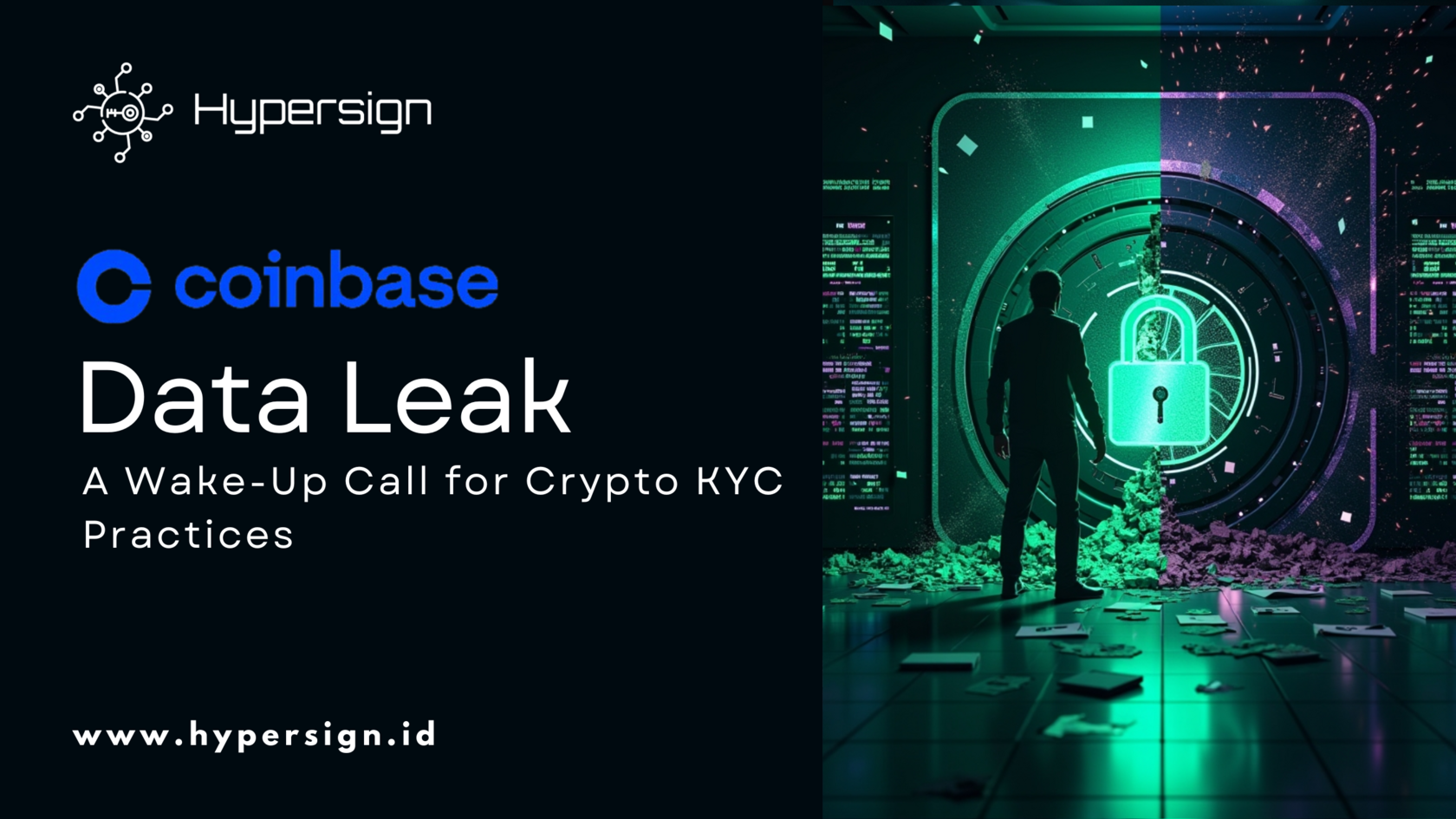Coinbase KYC Breach: A Wake-Up Call for Crypto Security
Earlier this month, the crypto world was rocked by a serious breach involving Coinbase. This wasn’t your typical “hacker in a hoodie” situation. It was something far more unsettling — an insider threat.
Support staff were tricked and bribed into giving away access. The result? Sensitive user data was exposed, including:
- Full names
- Home addresses
- Email addresses and phone numbers
- Bank account details
- Government-issued ID images
- Transaction history
For a platform trusted by millions, this breach wasn’t just damaging — it was dangerous.
But let’s be honest: this isn't just a Coinbase problem. It's a Web2 problem trying to survive in a Web3 world.
The Bigger Problem: Centralized KYC Systems
At the heart of the issue is how crypto platforms still manage identity and KYC (Know Your Customer) processes.
Most exchanges today use centralized KYC, where users upload sensitive documents — and those documents are stored in massive databases. Even when platforms outsource this to third-party KYC vendors, the model stays the same:
- One place to store everything
- Multiple teams or partners with access
- One breach away from disaster
It’s a model built for convenience — not for security.
And as we’ve seen time and again, centralized systems create a massive attack surface. All it takes is one weak link — or one dishonest employee — to compromise thousands (or millions) of users.
Why This Keeps Happening
Let’s break it down. Centralized KYC systems are vulnerable because:
- They store all sensitive data in one place
- They require users to upload full documents
- They grant broad access across internal teams or third-party vendors
- Users have no control over where their data goes or who sees it
This creates a perfect storm where phishing, bribery, and poor access controls can result in catastrophic breaches — just like what happened at Coinbase.
So… what’s the alternative?
How Hypersign is Fixing the Identity Problem
The Coinbase KYC breach isn’t just a warning—it’s a clear sign that the traditional way of handling user identity is no longer safe or sustainable. In an environment where data can be weaponized, centralized KYC systems become high-value targets for attackers and vulnerable to insider threats.
Hypersign offers a modern, decentralized alternative built to secure identity in the Web3 age.
Self-Sovereign Identity (SSI) with Public-Key Cryptography
Hypersign's SSI infrastructure allows users to own and control their identity using public-private key cryptography. Instead of storing sensitive information in centralized databases, identity credentials are issued to users and held securely in their wallets. This eliminates reliance on vulnerable third-party systems, making insider attacks like the one at Coinbase far less likely.
On-Chain, Reusable KYC
With Hypersign’s on-chain KYC, users go through a one-time verification process. The verified proof can then be reused across multiple platforms without resubmitting documents each time. This dramatically reduces the amount of personal data shared and stored—minimizing the attack surface.
Encrypted Data Vault (EDV)
For data that must be stored, Hypersign provides an Encrypted Data Vault (EDV), built on a multi-tenant, privacy-centric architecture. Each user’s data is encrypted individually, both in transit and at rest. So even if a breach were to occur, attackers would face encrypted, segregated data—not a wide-open database of identities.
Minimal Disclosure with ZKPs
Hypersign leverages Zero-Knowledge Proofs to enable selective disclosure. Platforms can verify facts—like age, nationality, or KYC status—without accessing the underlying documents. This approach respects privacy and drastically limits what attackers can steal, even if something goes wrong.
Regulatory Compliance (GDPR, MiCA, etc.)
Hypersign is built in alignment with global data privacy laws like GDPR and MiCA. This means projects using Hypersign not only enhance security but also ensure regulatory compliance, which is especially important for platforms operating in the EU or handling cross-border data.
The Takeaway: It’s Time to Rethink KYC
The Coinbase breach didn’t happen because someone clicked the wrong button.
It happened because the system itself is flawed.
It assumes trust in too many people, too many systems, and too much data being stored in one place.
At Hypersign, we’re replacing that system with something better — decentralized, user-controlled, and built for Web3. Our approach isn’t just more secure — it’s also more respectful of the user.
In a world where data is power, users should be the ones in control.
About Hypersign
Hypersign is a next-generation privacy-first KYC platform built for secure, efficient, and scalable identity verification. It ensures user data protection through advanced encryption and secure data vaults, enabling seamless compliance with global regulations like GDPR, DPDP, and LEA.
The platform is 5x faster and 50% more cost-effective than competitors, supporting on-chain compliance and reusable KYC/KYT/KYB. Live across multiple chains such as Nibiru, Dojima, and Babylon, Hypersign is backed by the Interchain Foundation and the Data Security Council of India. It powers fast onboarding, risk management, and secure transaction workflows across DeFi, RWA, gaming, and more.
The platform is 5x faster and 50% more cost-effective than competitors, supporting on-chain compliance and reusable KYC/KYT/KYB. Live across multiple chains such as Nibiru, Dojima, and Babylon, Hypersign is backed by the Interchain Foundation and the Data Security Council of India. It powers fast onboarding, risk management, and secure transaction workflows across DeFi, RWA, gaming, and more.
Contact us today at contact@hypersign.id to explore how we can tailor our solutions to your security needs. Together, we can build a safer digital ecosystem for your customers.



















